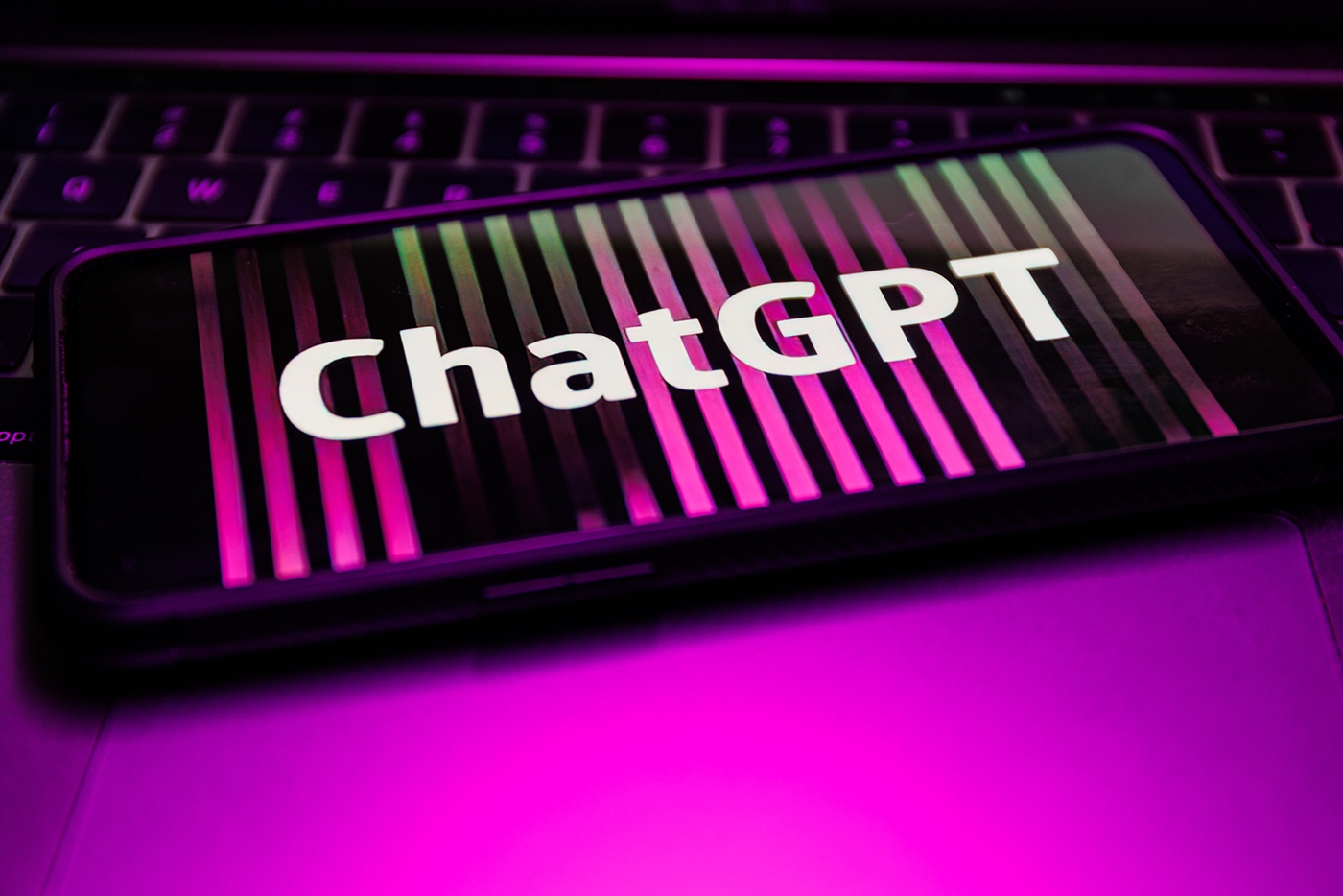AI And You: How ChatGPT Can Take Your Career To The Next Level
29 March 2023
Generative AI is causing a big buzz at the moment. The ability of tools like ChatGPT and Dall-E 2 to create text and images from simple prompts to a standard that can often pass for human means everyone is wondering what this technology means for the future of work. Rather than making humans redundant, professionals are learning to use it to supercharge their work, automating mundane everyday tasks to carry out their jobs more quickly and efficiently.

However, it’s important to remember that AI isn’t – and may never be – a replacement for human intelligence. Understanding this means learning its limits and recognizing the situations where human skills, knowledge, judgment, and creativity are still vital.
Learning how to use this powerful new technology to augment our own capabilities while freeing up our time to focus on more challenging, higher-value work will be a key workplace skill for many professionals in the age of AI.
First, what is ChatGPT?
For those of you who may not have tried – or even heard of – ChatGPT yet, firstly, what’s it like living on Mars? Secondly, the Cliff’s Notes version is that it’s a conversational interface (or chatbot) that understands and generates human languages. Think Alexa or Siri but far more advanced and capable of handling much more complex inquiries and responses.
It’s an example of "generative AI" because it can use existing data to generate new outputs, ranging from poetry and fiction to emails, essays, blog posts, and even computer code. ChatGPT was created by Open AI, which is funded by a number of technology and venture capital firms, most prominently Microsoft, who recently invested $10 billion and are integrating it into their Bing search engine. To get a little more technical, ChatGPT itself is actually a user interface (UI) for OpenAI’s large language model, called GPT-3. It was trained on a dataset consisting of over 175 billion pieces of information, including web pages, books, and articles in many different languages.
How Can Professionals Supercharge Their Abilities With ChatGPT and Generative AI?
A recent guest on my webinar was Dominic Allon, CEO of cloud CRM solutions provider Pipedrive. Discussing how professionals and businesses will integrate generative AI into their work, he told me, "It's helpful to reflect on how previous [technological advancements] have been integrated into the way we get work done.
“Sam Altman, CEO of Open AI, often uses the example of a calculator – how does a calculator change the way we figure out math problems and teach math?
“It actually got integrated into the way we work quite quickly; My expectation is this new tool – this ability to generate text quickly in a foundational, quite generic but logical manner will get embedded quite quickly into the way we work.”
Many examples already exist of ways in which ChatGPT and related technologies can be used by professionals:
· Writers can use it to generate blogs, articles, and informational material.
· Teachers can use it to summarize educational material and create assignments.
· Financial professionals can automate bookkeeping and reporting.
· Lawyers can use it to summarize case law and quickly develop an understanding of areas of law that they have not previously studied.
· Marketers can use it to create ad copy and sales emails.
· Customer service agents can use it to generate responses to inquiries and compile FAQ documents on issues that are frequently raised.
· Healthcare professionals can use it to extract relevant information from medical records and examinations and compile reports and summaries of patient data.
Augment Your Skills With New Abilities
But that’s just the start. Crucially, professionals can use it to augment their abilities to carry out tasks that might happen to fall outside of their skillset or area of expertise.
For example, a data analyst might be good at drawing conclusions based on charts and statistics but not great at writing these up into reports for their colleagues. This is where generative AI can step in, lending a hand with day-to-day activities and enabling professionals to spend their time on tasks where their strength lies.
Conversely, a writer can use their analytical abilities to augment their written work with statistics, even if they aren’t great at statistical research and analysis themselves.
A teacher might be fantastic at drawing the best out of their students and encouraging them to achieve their potential in exams but not enjoy the process of creating lesson plans or designing learning material. They can put generative AI to work to fill in the blanks in their skillset and become a more rounded, capable professional.
And a computer programmer might instinctively know how to use their programming language of choice but find it hard to explain what their code is doing to a non-coder. Generative AI can annotate code and create human-language explanations of what’s happening under the hood (and even spot bugs they might have missed.)
As Allon puts it, “What this will do is free up those professionals to do two things … firstly to be more efficient and effective, and to own a wider scope of work. And secondly to [focus on] a higher level of cognitive tasks.”
One example comes from his previous career at QuickBooks. Allon told me that once automated tools were in place to handle routine tasks such as reconciling transactions, accountants have been able to spend more time working directly with clients and developing their role as “trusted advisors” within their own organizations or with clients.
"The other point here," he continues, "is the role we all play in our different fields … will continue to be critically important because typically ChatGPT will offer up a fairly generic answer, and it's always the case that you'll have to augment that with a particular point of view, or the right tone and style for your company, so for me it’s about this combination of ‘better together’”.
The Way Forward
So, to summarize, there are three steps that we need to consider if we want to transform ourselves into supercharged, AI-augmented professionals. The first is to think about how AI can automate the routine and repetitive tasks we do every day.
Then we need to consider how it might expand our abilities and allow us to take on challenges that previously might have had us stumped or turning to others for help.
Last but by no means least, we need to think about how we can use the time we've freed up by harnessing generative AI to spend more time on truly human tasks. This means face-to-face time with clients, customers, and colleagues, as well as high-level strategic tasks, creative tasks, and work that requires us to come up with genuinely new ideas.
Taking this step-by-step approach is a great way to minimize our chances of being left behind by the AI revolution that's set to transform the world of work and make sure we’re in the best position to continue to add value.
Related Articles
AI Chatbots Are Quietly Creating A Privacy Nightmare
By now, “smart” versions exist of just about every home appliance, gadget and gizmos we can think of. However, manufacturers continue[...]
What Is Zero Click And Why Is It Turning Marketing On Its Head?
By now, “smart” versions exist of just about every home appliance, gadget and gizmos we can think of. However, manufacturers continue[...]
Sign up to Stay in Touch!
Bernard Marr is a world-renowned futurist, influencer and thought leader in the fields of business and technology, with a passion for using technology for the good of humanity.
He is a best-selling author of over 20 books, writes a regular column for Forbes and advises and coaches many of the world’s best-known organisations.
He has a combined following of 4 million people across his social media channels and newsletters and was ranked by LinkedIn as one of the top 5 business influencers in the world.
Bernard’s latest book is ‘Generative AI in Practice’.






Social Media